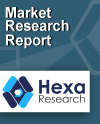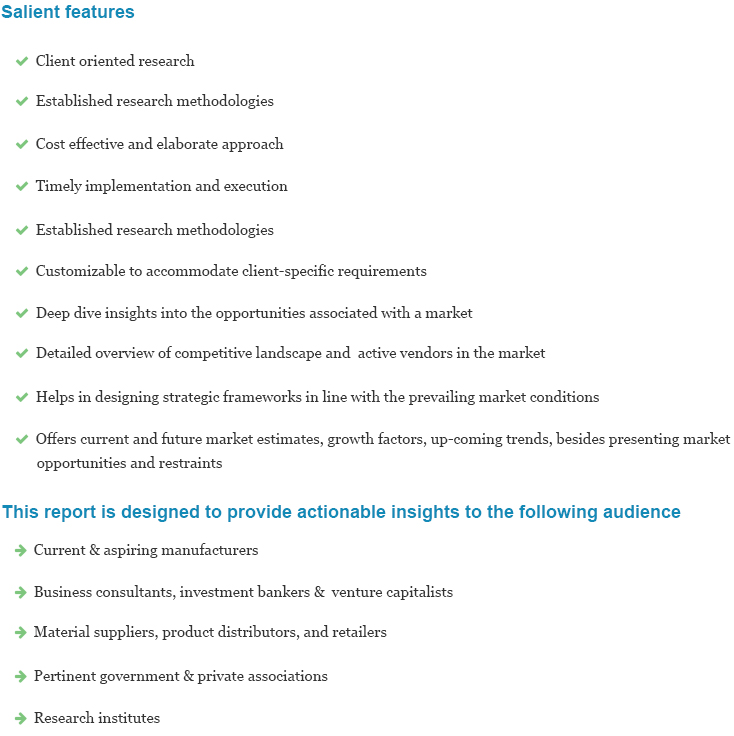
Glycine Market Analysis, Market Size, Application Analysis, Regional Outlook, Competitive Strategies and Forecasts, 2016 To 2024
- Published: August, 2015
- Format: Electronic (PDF)
- Number of pages: 79
- Industry: Animal Feed & Feed Additives
The global glycine market is expected to grow at a fast pace over the forecast period. Glycine is a carbon-based compound which is identified as the lowest of the twenty amino acids that are seen in proteins. It is technically produced by treating chloroacetic acid along with ammonia. In the developed country, for instance, in the U.S. glycine is circulated mainly in two positions which include technical and United States Pharmacopeia (USP). They are manufactured in huge quantities for varying applications and additionally hold over 80% of the overall U.S. market.
Glycine has a wide variety of applications in pharmaceuticals, chemical feedstock, research & development, personal care industry, and human & animal feeds. It is predominantly produced in Japan by Showa Denko KK and by Geo Specialty Chemicals Inc. in the U.S. Both of these manufacturers yield glycine by the synthesis of Strecker amino acid. Some of the other major companies producing glycine take inChattern Chemicals, Inc., which works as a subunit to Sun Pharmaceutical, centered in Mumbai, India. Additionally, Geo Specialty Chemicals, Inc. acquired the glycine as well as naphthalene sulfonate manufacturing units of Hampshire Chemical Corporation. It is a subunit of The Dow Chemical Company.
The overall market of glycine has gone through an evident rise as a result of the development of its customer businesses. Rising demand for meat is predicted to be amongst the important driving factors for animal feed, in so doing leading to the development of the global glycine market. However, supply and price instabilities of raw materials are anticipated to hold back the development of the industry. On account of instability in the supply of raw materials together with opposing weather conditions, raw materials are be subjected to a rise in their prices, owing to which producers are on the lookout for more cost-effective raw materials.
Major manufacturers have come into quite a few agreements and collaborations with other firms aimed at bringing in a greater share of the market as well as the advertising of new products. Far reaching companies, for instance, Evonik Industries stretched out its portfolio of glycine business in June 2011 through increasing their production capacity of the amino acid by 50%. This was made possible due to increasing demand, which was attained by productivity gains in the engineering process.
Evonik Industries also works as a key supplier of glycine whose manufacturing is performed at its manufacturing site in China. Moreover in 2010, Evonik attained the glycine business sector of Tessenderlo Group, based out of Belgium for additionally escalating its business in glycine. Along with producing active pharmaceutical ingredients for diabetes and antihypertensive drugs, the distribution of the company’s products is done majorly in the pharmaceutical industry, and as well in infusion solutions. Evonik diversified its product range of specialty chemical products by milling and sieving processes by capitalizing in a new manufacturing plant in Nanning.
Rising usage of glycine in the personal care segment, for instance, cosmetics is projected to be one of the foremost factors for the growth of the market. Also, increasing the potential of glycine in the food industry is furthermore expected to add to the progress of the market. Glycine is being increasingly applied in place of feed nutrient in pet diets as well as feed. Emphasis on research & development initiatives for the development of new and innovative products in addition to the concentration on expanding the market in the emerging nations such as Asia-Pacific and Latin America is projected to offer ample new prospects for the growth of the global glycine market.
The global glycine market is highly competitive in nature with frequent acquisitions, strategic alliances, and mergers. The major industry players include GEO Specialty Chemicals, Cargill Inc., Showa Denko KK, Ajinomoto Co., ADM, The Dow Chemical Company, Prinova U.S. LLC, Evonik Industries AG, and Royal DSM. Participants such asKemin Europa and Royal DSM are entirely incorporated across the whole value chain, using sesame seeds, soy meal, and other ingredients for amino acid production.

Choose License Type
- World's largest premium report database
- Transparent pre & post sale customer engagement model
- Unparalleled flexibility in terms of rendering services
- Safe & secure web experience
- 24*5 Research support service
